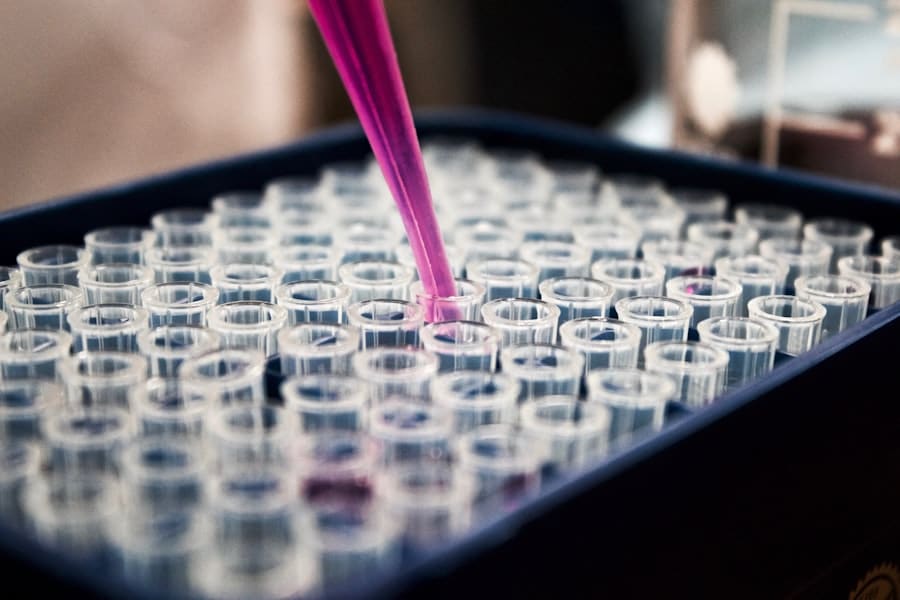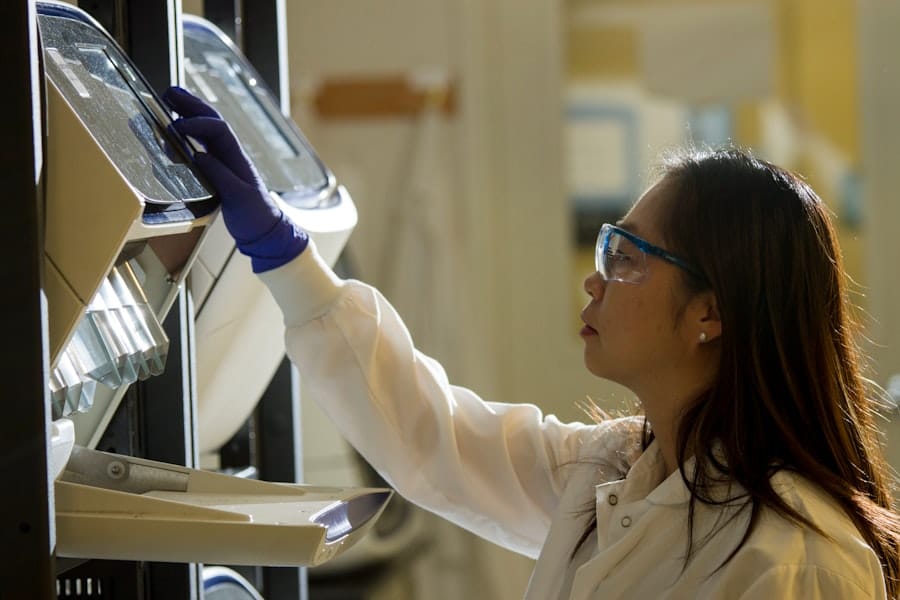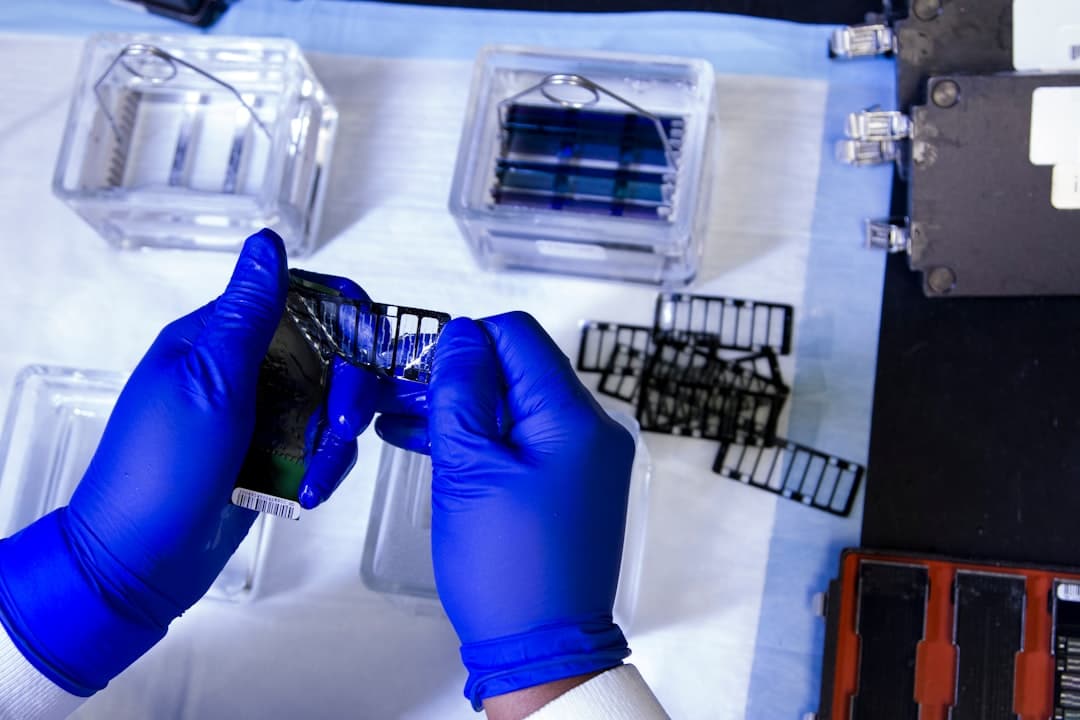The intersection of biotechnology and sustainable food alternatives represents a pivotal frontier in addressing the global challenges of food security, environmental degradation, and health. As the world grapples with a burgeoning population projected to reach nearly 10 billion by 2050, the demand for food is escalating at an unprecedented rate. Traditional agricultural practices, however, are often unsustainable, leading to soil depletion, excessive water use, and greenhouse gas emissions.
In this context, biotechnology emerges as a beacon of hope, offering innovative solutions that not only enhance food production but also align with ecological sustainability. Biotechnology encompasses a range of techniques that utilize living organisms or their components to develop products and processes beneficial to humanity. In the realm of food production, biotech innovations are transforming how we cultivate crops, produce proteins, and manage agricultural ecosystems.
By harnessing genetic engineering, fermentation technology, and other biotechnological advancements, researchers and companies are creating sustainable food alternatives that promise to reduce the environmental footprint of our diets while meeting nutritional needs. This article delves into various biotech innovations that are reshaping the landscape of sustainable food alternatives, highlighting their potential to revolutionize our food systems.
Key Takeaways
- Biotechnology plays a crucial role in developing sustainable food alternatives by leveraging innovative techniques to address global food challenges.
- Biotech innovations in plant-based protein production have led to the creation of more realistic and nutritious meat substitutes, offering a sustainable alternative to traditional animal agriculture.
- Cultured meat, produced through biotechnology, offers a promising solution to the environmental and ethical concerns associated with traditional meat production, while providing a more sustainable protein source.
- Biotech innovations in sustainable agriculture, such as precision farming and genetic engineering, are revolutionizing the way food is grown, leading to increased yields and reduced environmental impact.
- Biotech innovations in food preservation, nutrient enhancement, and food waste reduction are contributing to the development of more sustainable and nutritious food products, ultimately shaping the future of food production and consumption.
Biotech Innovations in Plant-Based Protein
The rise of plant-based diets has been fueled by growing awareness of health issues, animal welfare concerns, and environmental impacts associated with meat consumption. Biotech innovations in plant-based protein are at the forefront of this movement, providing alternatives that are not only nutritious but also environmentally friendly. One notable example is the development of genetically modified (GM) crops that are engineered to have higher protein content or improved amino acid profiles.
For instance, researchers have successfully enhanced the protein levels in soybeans and peas through genetic modification, making them more viable sources of protein for human consumption. Moreover, fermentation technology is being employed to create novel plant-based proteins that mimic the taste and texture of animal products. Companies like Impossible Foods and Beyond Meat utilize advanced fermentation processes to produce heme proteins from yeast, which impart a meaty flavor to their plant-based burgers.
These innovations not only cater to the growing demand for meat alternatives but also significantly reduce the carbon footprint associated with traditional livestock farming. By leveraging biotechnology, the food industry is able to offer consumers delicious and sustainable protein options that align with their dietary preferences.
Biotech Innovations in Cultured Meat

Cultured meat, also known as lab-grown or cell-based meat, represents one of the most groundbreaking advancements in biotechnology aimed at creating sustainable food alternatives. This innovative approach involves cultivating animal cells in a controlled environment to produce meat without the need for raising and slaughtering animals. The process begins with obtaining a small sample of muscle cells from a live animal, which are then placed in a nutrient-rich culture medium that allows them to proliferate and develop into muscle tissue.
This method not only addresses ethical concerns related to animal welfare but also significantly reduces the environmental impact associated with conventional meat production. One of the key advantages of cultured meat is its potential to minimize resource use. Traditional livestock farming requires vast amounts of land, water, and feed, contributing to deforestation and greenhouse gas emissions.
In contrast, studies have shown that cultured meat can be produced using up to 90% less land and water compared to conventional beef production. Companies like Memphis Meats and Mosa Meat are leading the charge in this field, with products that have already garnered attention from consumers and investors alike. As technology advances and production costs decrease, cultured meat has the potential to become a mainstream alternative that could revolutionize our food systems.
Biotech Innovations in Sustainable Agriculture
Sustainable agriculture is essential for ensuring food security while preserving natural resources for future generations. Biotech innovations play a crucial role in enhancing agricultural practices that promote sustainability. One significant advancement is the development of genetically modified organisms (GMOs) that are engineered for resilience against pests, diseases, and environmental stressors.
For example, Bt cotton and Bt corn have been modified to express a protein from the bacterium Bacillus thuringiensis, which provides built-in pest resistance. This reduces the need for chemical pesticides, leading to lower environmental contamination and improved crop yields. Additionally, biotechnology is being utilized to improve soil health through the development of biofertilizers and biopesticides derived from natural organisms.
These products enhance nutrient availability in the soil while minimizing chemical inputs that can harm beneficial microorganisms. For instance, mycorrhizal fungi have been harnessed to form symbiotic relationships with plant roots, improving nutrient uptake and promoting healthier crops. By integrating biotech innovations into sustainable agriculture practices, farmers can increase productivity while reducing their ecological footprint.
Biotech Innovations in Food Preservation
Food preservation is a critical aspect of reducing waste and ensuring food safety throughout the supply chain. Biotech innovations are revolutionizing how we preserve food by employing natural processes that extend shelf life without compromising quality. One notable example is the use of natural preservatives derived from microbial fermentation.
Lactic acid bacteria, for instance, can produce organic acids that inhibit spoilage organisms and pathogens in various food products. This approach not only enhances food safety but also aligns with consumer preferences for clean-label products free from synthetic additives. Moreover, biotechnology is paving the way for advanced packaging solutions that incorporate antimicrobial properties.
Researchers are developing biodegradable films infused with natural antimicrobial agents that can inhibit microbial growth on food surfaces. These innovations not only help maintain freshness but also contribute to reducing plastic waste associated with traditional packaging materials. By leveraging biotechnological advancements in food preservation, the industry can significantly reduce spoilage rates and enhance food security while catering to environmentally conscious consumers.
Biotech Innovations in Nutrient Enhancement

Nutrient enhancement through biotechnology is another promising avenue for addressing global malnutrition and improving public health outcomes. Biofortification involves genetically modifying crops to increase their nutritional content, thereby providing essential vitamins and minerals directly through staple foods. A prime example is Golden Rice, which has been engineered to produce beta-carotene, a precursor to vitamin This innovation aims to combat vitamin A deficiency prevalent in many developing countries where rice is a dietary staple.
In addition to genetic modification, biotechnology is also being utilized to enhance nutrient bioavailability in foods through fermentation processes. For instance, certain strains of yeast and bacteria can be employed to ferment grains or legumes, increasing their levels of bioavailable nutrients such as iron and zinc.
By harnessing biotech innovations for nutrient enhancement, we can create healthier food options that contribute to better health outcomes on a global scale.
Biotech Innovations in Food Waste Reduction
Food waste is a pressing issue globally, with approximately one-third of all food produced for human consumption going uneaten each year. Biotech innovations are emerging as powerful tools in combating this challenge by improving food utilization and extending shelf life. One innovative approach involves developing enzymes that can break down complex carbohydrates in food waste into simpler sugars that can be fermented into biofuels or other valuable products.
This not only reduces waste but also creates opportunities for resource recovery. Additionally, biotechnology is being applied to create smart packaging solutions that monitor freshness and spoilage indicators in real-time. These intelligent packaging systems utilize biosensors that detect changes in microbial activity or chemical composition within food products.
By providing consumers with accurate information about freshness, these technologies can help reduce unnecessary discards at both retail and household levels. Through these innovative approaches, biotechnology offers promising pathways for minimizing food waste while maximizing resource efficiency.
The Future of Biotech in Sustainable Food Alternatives
The future of biotechnology in sustainable food alternatives holds immense potential for transforming our global food systems. As we face increasing pressures from population growth, climate change, and resource scarcity, biotech innovations provide viable solutions that align with sustainability goals while meeting nutritional needs. From plant-based proteins and cultured meat to advancements in sustainable agriculture and nutrient enhancement, biotechnology is paving the way for a more resilient and equitable food landscape.
As research continues to advance and public acceptance grows, we can expect further breakthroughs that will enhance our ability to produce food sustainably while minimizing environmental impacts. The integration of biotechnology into our food systems not only promises to address immediate challenges but also lays the groundwork for a future where food security is achieved without compromising ecological integrity or human health. The journey toward sustainable food alternatives through biotechnology is just beginning, but its implications for society are profound and far-reaching.
Biotechnology plays a crucial role in developing sustainable food alternatives, addressing the growing demand for environmentally friendly and nutritious options. For those interested in exploring how technology influences various sectors, you might find the article on top trends on Instagram in 2023 insightful, as it highlights how social media can shape consumer preferences and promote awareness of sustainable practices in the food industry.
FAQs
What is biotech and how does it enable sustainable food alternatives?
Biotech, short for biotechnology, involves the use of living organisms or their products to create or modify products, improve plants or animals, or develop microorganisms for specific uses. In the context of sustainable food alternatives, biotech enables the development of genetically modified organisms (GMOs) that can withstand harsh environmental conditions, require fewer resources, and produce higher yields.
What are some examples of sustainable food alternatives enabled by biotech?
Some examples of sustainable food alternatives enabled by biotech include genetically modified crops that are resistant to pests and diseases, have enhanced nutritional profiles, or can thrive in drought-prone or saline soils. Additionally, biotech has facilitated the development of plant-based meat substitutes and alternative protein sources, such as those derived from algae or fungi.
How does biotech contribute to environmental sustainability in food production?
Biotech contributes to environmental sustainability in food production by reducing the need for chemical pesticides and fertilizers, conserving water resources through drought-resistant crops, and minimizing the environmental impact of livestock farming through alternative protein sources. Additionally, biotech enables the production of biofuels from non-food sources, further reducing the environmental footprint of food production.
What are some potential benefits and challenges of biotech-enabled sustainable food alternatives?
Potential benefits of biotech-enabled sustainable food alternatives include increased food security, reduced environmental impact, improved nutritional quality, and enhanced resilience to climate change. However, challenges include public perception and acceptance of GMOs, potential impacts on biodiversity, and the need for stringent regulations to ensure safety and ethical considerations in biotech applications.

